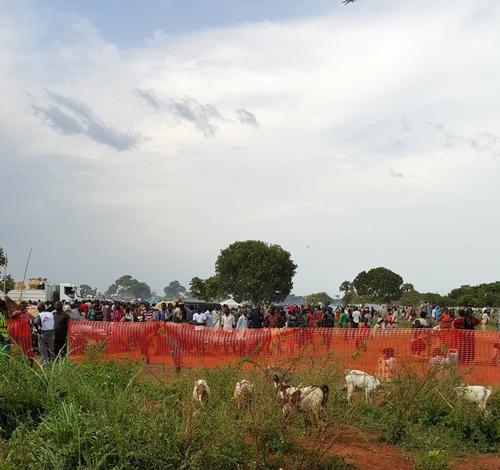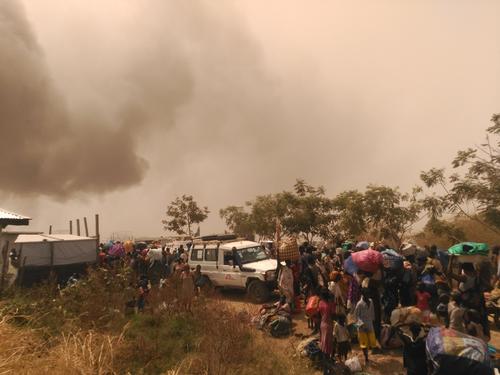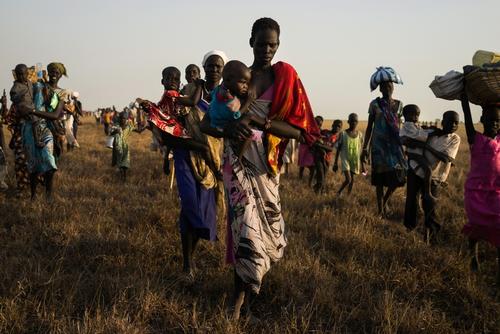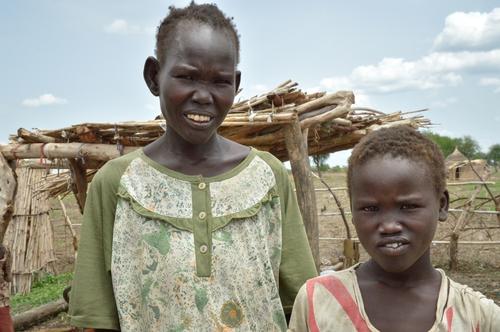Dr David Kahindi, Deputy Medical Coordinator for MSF, has been working in South Sudan for more than three years. He recently arrived in Wau where he has been overseeing MSF’s emergency response.
Just one week ago I drove past the empty land that surrounds the UN base in Wau, South Sudan. Today those same fields are flooded with thousands of people who have fled their homes in fear for their lives.
We know that tens of thousands more are scattered across the surrounding area. Some are sheltering in a school and in a church and others are in the forest, totally exposed to the elements.
Heavy fighting took place in Wau on Friday last week. We don’t yet know how many people were killed, but dead bodies are still lying in the streets. People started running, and they still are – as I speak more people are arriving at the UN base. They are mostly families with few belongings, urgently seeking food, water, shelter and medical care.
The people we are treating are much sicker than we would have expected, but it is the culmination of months of ongoing instability. We’ve seen gunshot wounds and women who have been raped. We have also seen people who just want to express what has happened to them. They are very distressed and have physical manifestations resulting from mental trauma. Today one man came to tell me that his brother had died in the fighting. He had been trying to hide, but was found and killed. The man was asking us for help and it is clear that he is very depressed.
We have also treated people who fled the local hospital. Earlier this year patients were pulled from their hospital beds, so it’s not surprising that they don’t feel safe. Today I treated a lady who had severe burns on her hands and abdomen that had gone septic because she was too scared to return to the hospital.
While this round of fighting has forced new waves of people from their homes, others have been living outside for months, too scared to return home. We’ve been here for a couple of months, running mobile clinics outside the town, trying to reach some of the most isolated people. Each week we treat cases of severe malaria - people are sleeping outside, under the trees, and don’t have access to bed nets. We also see cases of severe malnutrition – people have not been able to cultivate their crops because of the conflict, so food is scarce. People also have upper respiratory tract infections, skin infections and diarrhoea – all of which are related to the conditions that they are forced to live in.
It is possible that there are hundreds if not thousands of people who have been pushed even further away by the fighting. It is those people that I am really worried about – are they sick, and can they find treatment? We will work tirelessly to try to reach them in the coming days.






